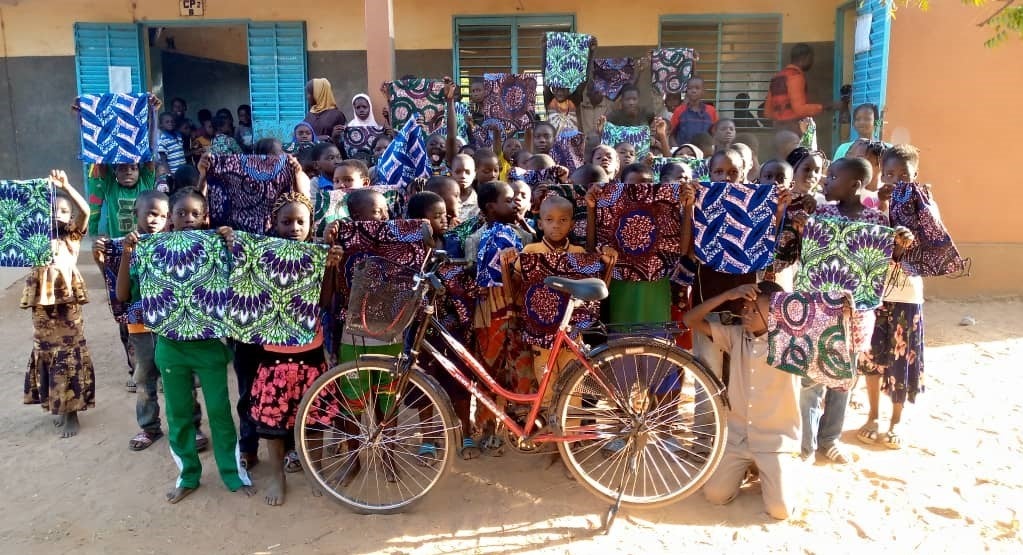Kongoussi, Burkina Faso, 19 November 2021 -- The city of Kongoussi organised a week of activities to raise awareness of the negative impacts of waste, specifically plastic bags, with the city’s mayor saying there is “an urgent need act at city level.”
During the plastic bag-free city week, different activities were organised, such a drawing contest, theater forums, a public cleanup day, a conference on waste management and climate change, and the inauguration of an information centre on climate change.
The city of Kongoussi has seen rapid urban growth in recent years but only limited ability to provide waste management services. The country has had a law forbidding the use and production of plastic bags since 2014, but the level of implementation is low.
Kongoussi is one of the four beneficiary municipalities of UN-Habitat’s project Strengthening the resilience of local authorities impacted by massive urban displacement and the COVID-19 pandemic.
The project is funded by the European Union's Instrument for Stability and Peace. One of the specific objectives of the project is to "reduce the impact of population growth on the environment", under the overall objective to increase the social and economic inclusion of displaced persons in the cities.
The activities for a “plastic bag-free city” took place from 8-13 November 2021 and strongly advocated for a strategy of fostering “3 Rs” around waste management: Rethink, Reduce and Refuse. The initiative was supported by UN-Habitat, the Zood-Nooma Association for Development (AZND), and the City of Ludwigsburg, Germany.
"Each citizen must pay particular attention to the numerous damages that the abusive use of plastic bags causes to our environment, our living environment, our health and our economic and social development efforts," says Ali Ouedraogo, High Commissioner of the province of Bam in the Centre-North region, of which Kongoussi is the regional capital.
Due to the absence of a solid waste management system, plastic bags are a serious environmental problem in Kongoussi. During heavy rains, drainage systems are blocked, increasing the risk of flooding. Furthermore, plastic bags are polluting the environment, contributing to diseases, and death of animals and people.
“There needs to be a change in behavior regarding plastic bags,” says Stephanie Loose, UN-Habitat’s Chief Technical Advisor Burkina Faso country office. “The activities of this week helped to inform people of the direct, negative impacts on their lives. Through theatre forums, the message got through even to those community members who might not be reached by other communication means.”

UN-Habitat supports cities in their efforts to improve solid waste management, for example through the Waste Wise Cities, a UN-Habitat programme with a global network to inspire, catalyse, guide, monitor, enable and mobilise support for local governments to work towards improved waste management and resource efficiency.
In support of the Sustainable Development Goals (SDG), Waste Wise Cities and its affiliates share knowledge and good practices, build capacity for waste data collection and monitoring, advocate and educate, and assist in the preparation of bankable waste management projects.
Especially interesting for stakeholders in Africa is also the African Clean Cities Platform (ACCP). Launched in 2017, ACCP is a knowledge sharing, SDG monitoring and investment promotion platform to improve solid waste management and achieve waste SDGs in Africa. Read more here.